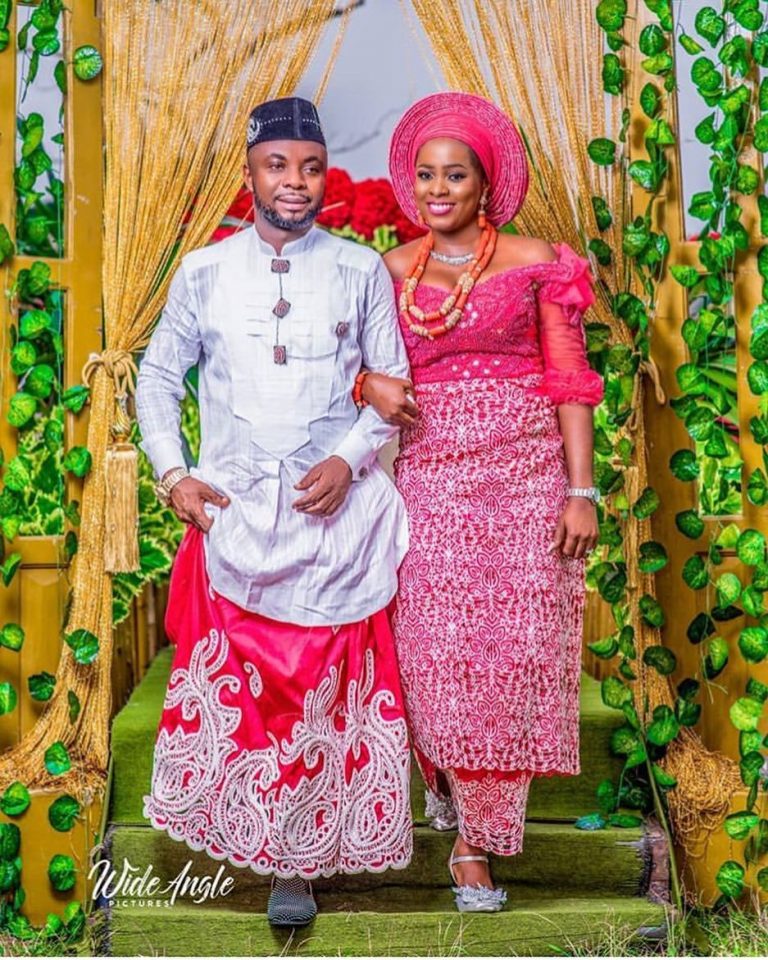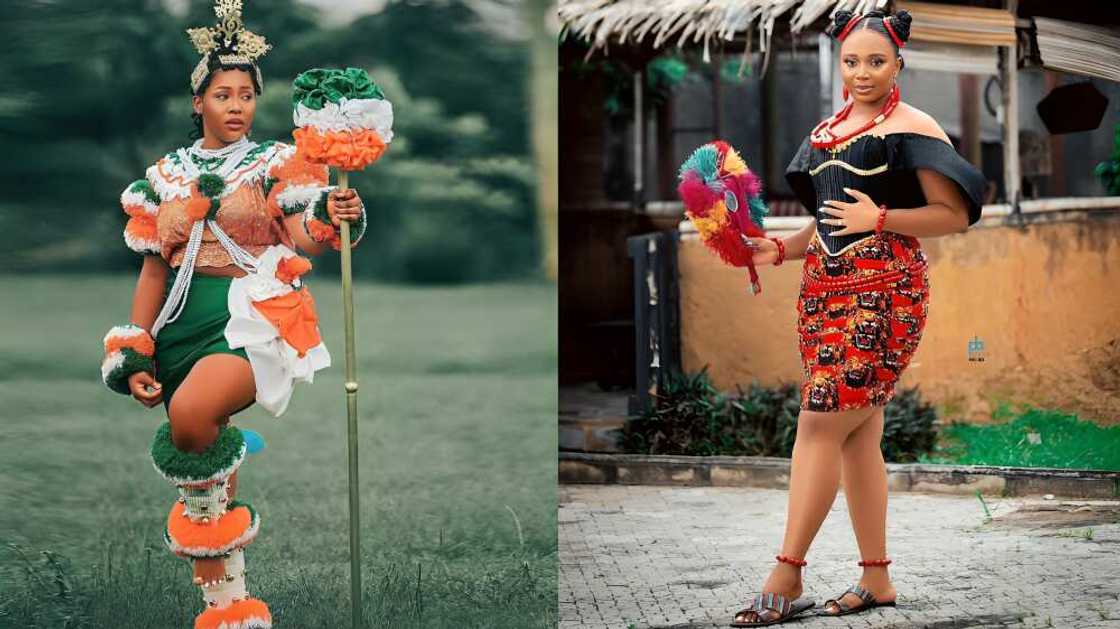Ibibio & Efik Traditional Attire: A Vibrant Cultural Display
What makes a culture truly captivating? The enduring traditions of the Ibibio and Efik people of southeastern Nigeria offer a compelling answer, woven into the very fabric of their vibrant attire. These garments are more than mere clothing; they are intricate narratives of identity, history, and deeply held values, imbued with symbolism that speaks volumes.
The Ibibio and Efik, closely related ethnic groups primarily inhabiting Akwa Ibom State, share a rich heritage expressed through a dazzling array of colors, patterns, and designs in their traditional clothing. From the bold hues that first catch the eye to the subtle details that reveal deeper meaning, each element of their attire tells a story. While similarities exist, distinct features set the Ibibio and Efik styles apart, reflecting the nuances of their respective cultural identities within the larger tapestry of Nigerian tradition.
| Aspect | Ibibio | Efik |
|---|---|---|
| Location | Primarily Akwa Ibom State, Southeastern Nigeria | Primarily Cross River State, Southeastern Nigeria |
| Traditional Attire (Men) | Usobo (wrapper, often worn for weddings) | Usobo (wrapper, often of silk or velvet), European-influenced accessories (cane, hat, shoes) |
| Traditional Attire (Women) | Akwa Ocha or Etibo wrapper, blouse, and headgear (Gela), often with intricate beadwork. Stylish wrappers and blouses for everyday wear. | Ofod Ukod Anwang and Onyonyo (regal, often elaborate gowns for weddings), European-influenced styles. Long flowing gowns with coral beads for special occasions. |
| Cultural Significance | Reflects identity, history, and values, often worn for ceremonies and celebrations. | Reflects identity, history, and values, often worn for ceremonies and celebrations. Shows historical European influence. |
| Reference | Wikipedia - Ibibio People |
The men's usobo, a type of wrapper, forms a cornerstone of traditional Ibibio and Efik attire. For the Ibibio, it's a staple for wedding celebrations, while Efik men often elevate the usobo with luxurious fabrics like silk or velvet. The influence of early European contact is evident in Efik men's fashion, particularly in accessories like canes, hats, and shoes, echoing styles prevalent in Europe at the time.
Women's attire showcases even more elaborate expressions of cultural identity. The Efik onyonyo, a regal ball gown, stands as a testament to their penchant for extravagant and striking fashion. Ibibio women, on the other hand, traditionally don a vibrant ensemble consisting of a wrapper, blouse, and headgear crafted from akwa ocha or etibo fabric. Intricate beadwork and other adornments add further layers of artistry and symbolism. For less formal occasions, stylish wrappers and blouses maintain a sense of tradition while offering greater practicality.
The Ibibio womans traditional headwear, known as the gela, adds a touch of elegance and cultural significance. Alternatively, elaborate braided hairstyles adorned with accessories serve as a striking alternative. Jewelry, adorning the neck, hands, and legs, complements the overall aesthetic, reflecting the Ibibio appreciation for ornamentation and detail. This commitment to tradition also extends to wedding ceremonies, where both bride and groom wear attire that embodies the beauty and uniqueness of Ibibio culture. The colorful ensembles, often featuring akwa ocha or etibo fabric, are a vibrant celebration of heritage and artistry.
Efik women's wedding attire boasts two prominent styles: ofod ukod anwang and onyonyo. These elaborate garments, often adorned with intricate details and shimmering embellishments, transform the bride into a vision of elegance and tradition. Bright, shining fabrics and elegant draping create a look that befits the importance of the occasion, showcasing the Efik people's appreciation for grandeur and beauty.
The similarities in traditional wear across Akwa Ibom State's diverse ethnic groups, including the Annang, Eket, Oron, and Obolo, highlight the interconnectedness of their cultural heritage. While each group maintains distinct traditions, the shared elements in their attire speak to a common thread of cultural identity that binds them together.
The influence of European fashion on Efik attire, while noticeable, doesnt overshadow the inherent cultural significance of their traditional garments. Rather, it represents a unique blend of influences, creating a style that is both distinctive and representative of their historical interactions. The Ibibio, too, maintain a strong sense of pride in their customs and traditions, with a resurgence of traditional Ibibio attire even among those with Efik heritage.
From the regal elegance of the onyonyo to the vibrant colors of the Ibibio wedding attire, the clothing of the Ibibio and Efik people stands as a powerful testament to their cultural richness. It is a living embodiment of their history, values, and artistic expression, ensuring that their heritage continues to thrive in the modern world.


